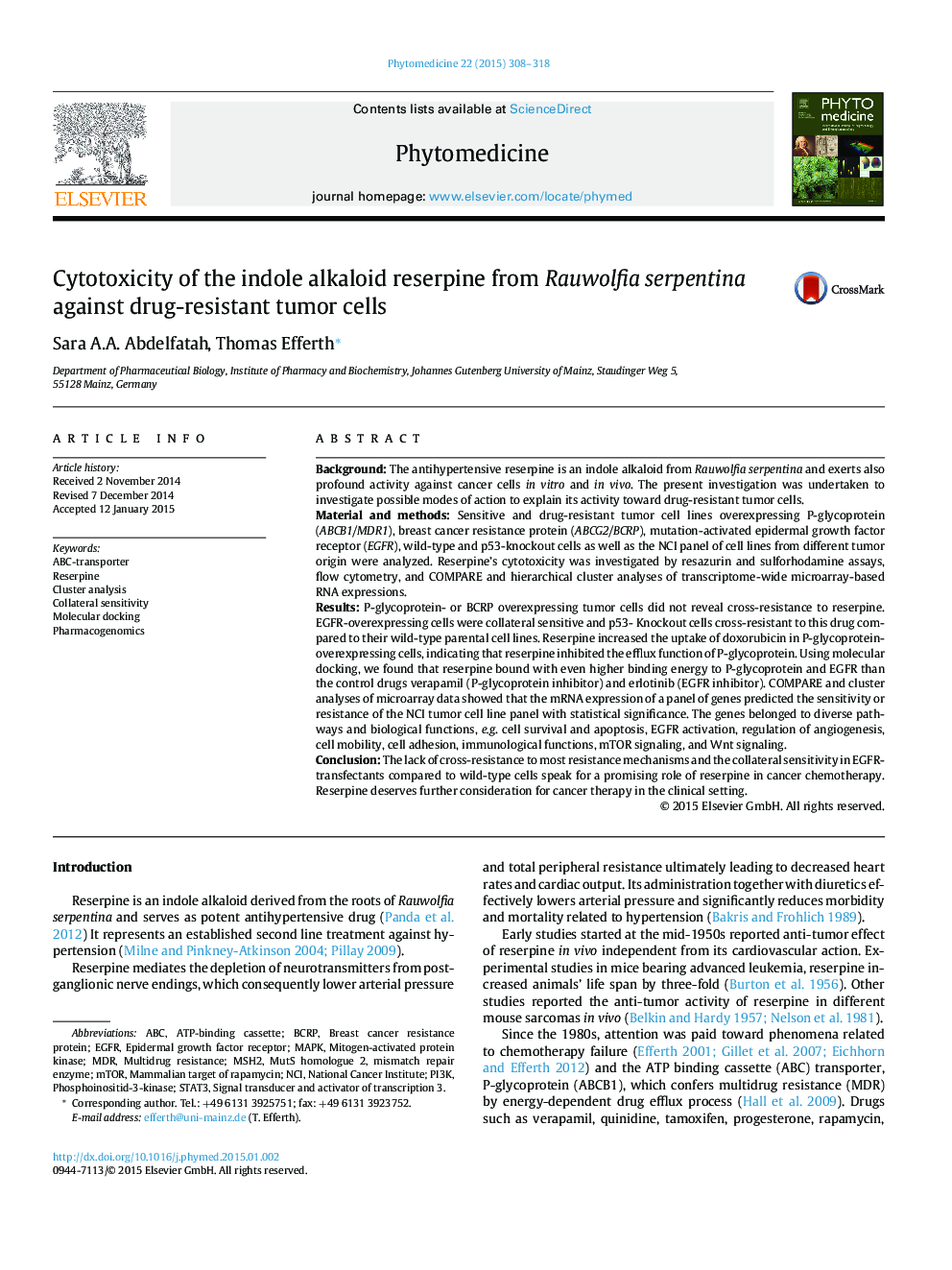| Article ID | Journal | Published Year | Pages | File Type |
|---|---|---|---|---|
| 2496569 | Phytomedicine | 2015 | 11 Pages |
Background: The antihypertensive reserpine is an indole alkaloid from Rauwolfia serpentina and exerts also profound activity against cancer cells in vitro and in vivo. The present investigation was undertaken to investigate possible modes of action to explain its activity toward drug-resistant tumor cells.Material and methods: Sensitive and drug-resistant tumor cell lines overexpressing P-glycoprotein (ABCB1/MDR1), breast cancer resistance protein (ABCG2/BCRP), mutation-activated epidermal growth factor receptor (EGFR), wild-type and p53-knockout cells as well as the NCI panel of cell lines from different tumor origin were analyzed. Reserpine's cytotoxicity was investigated by resazurin and sulforhodamine assays, flow cytometry, and COMPARE and hierarchical cluster analyses of transcriptome-wide microarray-based RNA expressions.Results: P-glycoprotein- or BCRP overexpressing tumor cells did not reveal cross-resistance to reserpine. EGFR-overexpressing cells were collateral sensitive and p53- Knockout cells cross-resistant to this drug compared to their wild-type parental cell lines. Reserpine increased the uptake of doxorubicin in P-glycoprotein-overexpressing cells, indicating that reserpine inhibited the efflux function of P-glycoprotein. Using molecular docking, we found that reserpine bound with even higher binding energy to P-glycoprotein and EGFR than the control drugs verapamil (P-glycoprotein inhibitor) and erlotinib (EGFR inhibitor). COMPARE and cluster analyses of microarray data showed that the mRNA expression of a panel of genes predicted the sensitivity or resistance of the NCI tumor cell line panel with statistical significance. The genes belonged to diverse pathways and biological functions, e.g. cell survival and apoptosis, EGFR activation, regulation of angiogenesis, cell mobility, cell adhesion, immunological functions, mTOR signaling, and Wnt signaling.Conclusion: The lack of cross-resistance to most resistance mechanisms and the collateral sensitivity in EGFR-transfectants compared to wild-type cells speak for a promising role of reserpine in cancer chemotherapy. Reserpine deserves further consideration for cancer therapy in the clinical setting.
Graphical abstractFigure optionsDownload full-size imageDownload high-quality image (131 K)Download as PowerPoint slide
